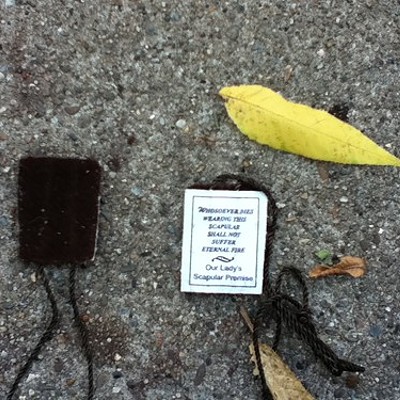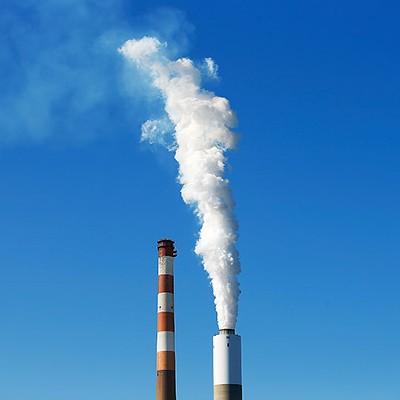Friday, September 21, 2012
Cyclists, Smartphone Users Sought to Combat Air Pollution
Diesel particles are among the most insidious forms of air pollution in most cities — nearly ubiquitous, and linked to cancers, heart diseases, respiratory illnesses and premature deaths.
A new local project to identify this pollution’s sources and hotspots is seeking bicyclists and smartphone-users to help.
The initiative teams eggheads from Carnegie Mellon and techies from Google with the Group Against Smog and Pollution. (The complete text of the GASP press release is below.)
Diesel exhaust comes largely from vehicles — trucks, trains, boats, buses and construction equipment. The exhaust contains ultrafine particles that avoid the body’s defense systems and work their work straight into the bloodstream.
Volunteer cyclists will strap air-monitors to the front of their bike and gather data while riding. The bike project is being funded by a grant from Google, whose Bakery Square offices are home to many bike commuters, according to the release.
To learn more about the bicycle project, or to volunteer, visit gasp-pgh.org/projects/bam.
Smartphone owners, meanwhile, can help fight pollution too, via a new app out of CMU. The app lets Smartphone types take photos of smoking diesel vehicles and send them directly to GASP. The project is part of SENSR, a product of CMU’s Living Environments Lab.
Anyone can contribute, and anyone can see the photos, which will appear on an online map. “We’ll quickly get a sense of which companies show up a lot in the images, and which streets generate a lot of complaints,” says GASP’s Jamin Bogin. “GASP will follow up with the worst offenders to see what the problem is.”
You can download the SENSR app at www.sensr.org. (Choose “Dirty Diesels.”)
PRESS RELEASE
For Immediate Release
September 20, 2012
Citizen Science Through Bicycles and Smartphones : Pittsburghers Needed To Collect Diesel Data
PITTSBURGH, PA —Like in any urban area with a large numbers of vehicles, Pittsburgh breathers suffer from diesel pollution. Trucks, trains, boats, buses, and construction equipment all emit exhaust that contains ultrafine particles small enough to avoid the body's defense systems and travel straight into the bloodstream. These emissions are linked to cancers, cardiovascular diseases, respiratory illnesses, and premature deaths.
GASP hopes to get a handle on the region's diesel pollution with the help of local residents. Concerned about dirty diesels? If you have a bicycle or a smartphone, you can help collect data that will identify hotspots of diesel pollution in the region, whether due to high levels of diesel activity or individual companies with dirty fleets.
"We need the help of cyclists to complete a reliable map of particulate matter in Pittsburgh," says Christine Rigby, SCA Green Cities Fellow with Group Against Smog and Pollution (GASP). Volunteers will strap an air monitor to the front of their bike and gather data as they ride. "We'll get a close-up picture of what cyclists, pedestrians, and motorists are encountering on their commutes. This will help us pinpoint areas of concentrated pollution," Rigby adds.
The bike monitoring project was made possible by a grant from Google, which has many cycling commuters at their Bakery Square office in Pittsburgh. "We'll overlay the air data onto Google Maps, so Pittsburghers can see potential problem areas. But we need help from bicyclists all over the city," Rigby stresses. To learn more or to volunteer for the project, visit gasp-pgh.org/projects/bam/.
GASP is also launching a less physically challenging project aimed at capturing diesel information. Smartphone owners can now send pictures of smoking diesel vehicles straight to GASP. "The photos pop up on a map. Anyone can see the photos and map, and anyone can contribute pictures. We'll quickly get a sense of which companies show up a lot in the images, and which streets generate a lot of complaints," says Jamin Bogi, Education and Outreach Coordinator at GASP. "GASP will follow up with the worst offenders to see what the problem is. It's hard to argue with a hundred pictures," Bogi adds.
The project is part of "SENSR," which came out of the Living Environments Lab at Carnegie Mellon University (CMU). Sunyoung Kim, a Ph.D candidate in Human-Computer Interaction Institute at CMU who developed the SENSR app, explains "as researchers and social activists, we explore ways to promote grassroots efforts and activism through technology. SENSR particularly focuses on lowering technical barriers for citizen science to easily make use of mobile and computing technologies. We hope that our efforts can help foster grassroots participation for our everyday life, health, and well-being."
For more information and to participate, download the SENSR app and choose "Dirty Diesels." You can also view the project and other citizen science projects at www.sensr.org.
"These two programs allow concerned citizens to directly participate in making a difference in Pittsburgh. They're easy and fun to use, and don't require a big time commitment. A few minutes pushing a few buttons helps us better quantify our diesel problem," Bogi adds. "The more ways for citizens to have a say in their communities, the better. We don't have to accept dirty air."
###
Contact :
Bike Monitoring Project
Christine Rigby, GASP
(813) 751-9730
[email protected]
SENSR App & Dirty Diesels Project
Jamin Bogi, GASP
(412) 924-0604
[email protected]
and
Sunyoung Kim, CMU
(412) 877-4598
[email protected]
The Group Against Smog and Pollution, Inc. (GASP) is a Pittsburgh-based nonprofit citizens group working for a healthy, sustainable environment. Founded in 1969, GASP serves as a watchdog, educator, litigator, and policy-maker on many environmental issues with a focus on air quality in Southwestern Pennsylvania.
—
Tags: diesel , air pollution , GASP , Carnegie Mellon , Google , bicyclists , smartphones














